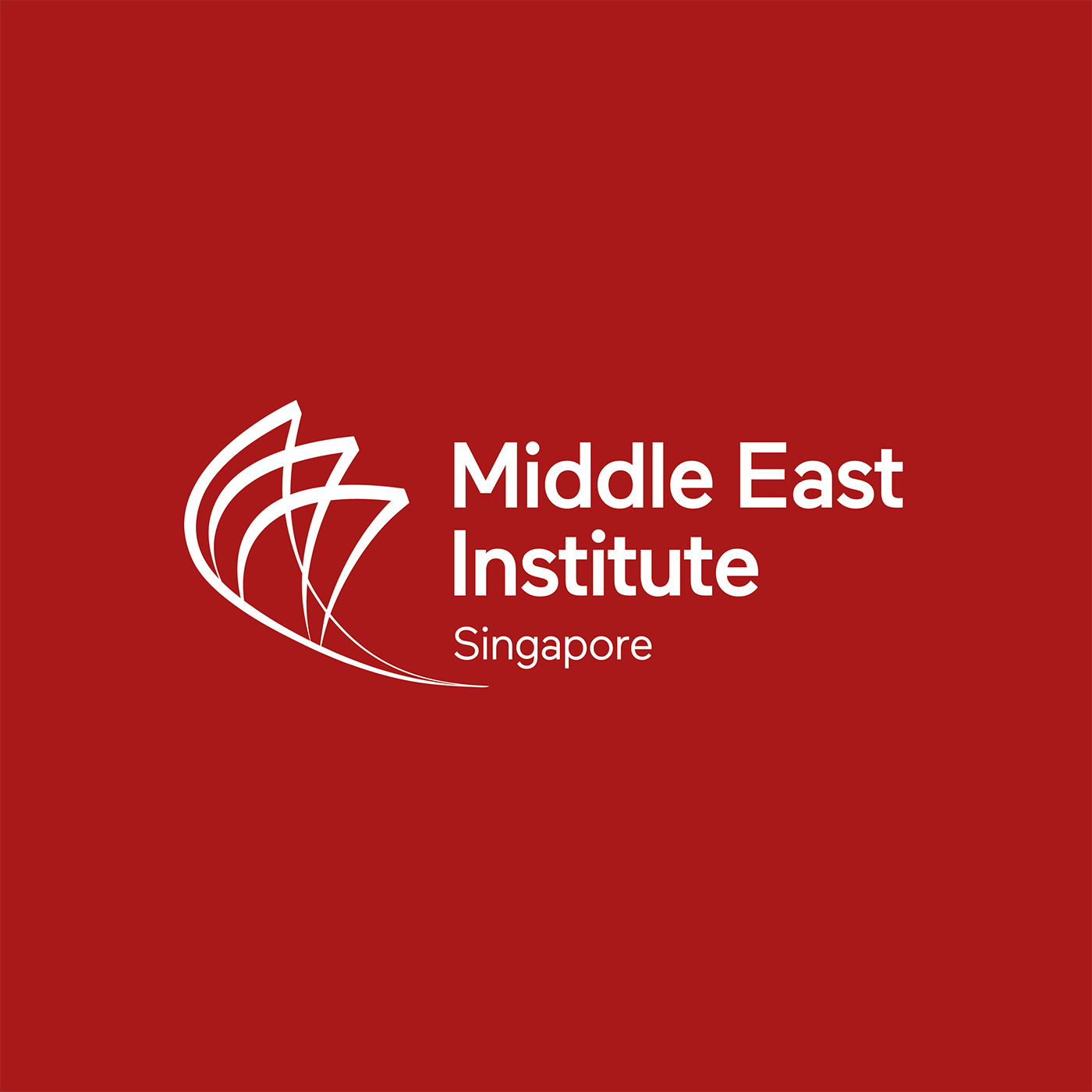Episodes
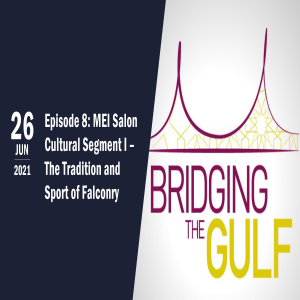
Tuesday Jun 29, 2021
Tuesday Jun 29, 2021
Did you know that the Hawk of Quraysh is a symbol featured in numerous emblems, coat of arms and flags of various Arab states? In the recorded history about the Quraysh, a mercantile tribe that inhabited the city of Mecca, claims have been made about the falcon as their clan symbol. Falconry, once at the heart of Arabian desert life, has undergone transformations due to rapid urbanisation in the Gulf. Yet, the bird of prey remains an integral part of Arabian culture.
The Middle East Institute, along with the UAE Embassy in Singapore, welcomes the CEO of Hamdan bin Mohammed Heritage Centre to share his knowledge about the tradition and sport of falconry.
Speaker: Mr Abdullah Hamdan bin Dalmook, CEO, Hamdan bin Mohammed Heritage Centre
After majoring in political science and completing his studies in the US, Mr Abdullah Hamdan Bin Dalmook began his career by working for the UAE’s Ministry of Interior. Later he was assigned to manage the heritage and the diving villages in Dubai’s Shindagha area and was appointed as its director in 1997. In 2005, he was appointed as the executive director of the championships office of his highness the crown prince of Dubai. In 2013, his highness the crown prince of Dubai issued a decree to establish the Hamdan Bin Mohammed Heritage Centre and Mr Dalmook was appointed as the chief executive officer of it. In 2017, the center’s organisational body was restructured but Mr Dalmook still remains as its Chief Executive Officer to date.
Mr Dalmook is an expert in the UAE’s heritage, with an accreditation granted to him by the council of ministers. He was the chairperson of many committees implementing official festivals and supervising many traditional television programmes belonging to his highness the crown prince of Dubai at the Dubai Media Incorporated.
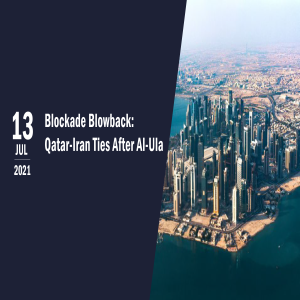
Saturday Jul 24, 2021
Blockade Blowback: Qatar-Iran Ties After Al-Ula
Saturday Jul 24, 2021
Saturday Jul 24, 2021
Qatar has taken the first steps to effect reconciliation with its Gulf neighbours, having recently welcomed Saudi Arabia’s new ambassador to Doha. Elsewhere, reports indicate that Bahrain invited Qatar for bilateral talks to strengthen Gulf co-operation. Yet, against the backdrop of a diplomatic freeze from 2017 to 2021, Doha found it vital to transit via Iran’s airspace and territorial waters in order to circumvent the blockade imposed by the anti-Qatar quartet (Saudi Arabia, Bahrain, the UAE and Egypt). Considering the Al-Ula declaration earlier this year, will there be a reversal in the warming of Qatar-Iran ties?
With the ascension of Ebrahim Raisi in Tehran and his conservative administration, will the nature of the Qatar-Iran relationship change? Undeniably, Doha’s ties to Iranian rivals such as the US and Saudi Arabia remain of strategic value. How can Qatar sustain its “hedging” strategy? Can Doha act as a reliable intermediary in, for instance, facilitating a US-Iran breakthrough? What are the implications for regional security?
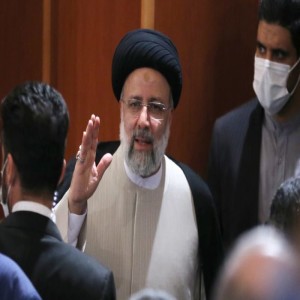
Tuesday Jul 27, 2021
Iran's Presidential Election: Impact on the Islamic Republic's Policies
Tuesday Jul 27, 2021
Tuesday Jul 27, 2021
The engineering of president-elect Ebrahim Raisi’s victory in Iran’s recent election on 18 June 2021 constitutes a potential domestic and foreign policy watershed. Designed to ensure conservative control of all levers of power in Iran and help Supreme Leader Ayatollah Ali Khamenei manage his succession, manipulation of the election swept aside the Islamic republic’s long-standing democratic pretensions. Moreover, efforts to achieve American and Iranian agreement on a return to the 2015 international nuclear agreement could be complicated by the fact that the US has sanctioned Raisi for his troubled human rights record. This webinar will explore what impact the rise of Raisi will have on regional security in the Middle East.
This public talk was conducted online via Zoom on Tuesday, 6 July 2021, from 4pm to 5.30pm (SGT).
Click here for more details on the event: https://mei.nus.edu.sg/event/irans-presidential-election-impact-on-the-islamic-republics-policies/
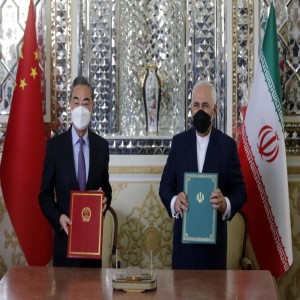
Tuesday Jul 27, 2021
A Middle East Bet on China? Strategic Partnerships and Regional Rivalries
Tuesday Jul 27, 2021
Tuesday Jul 27, 2021
Chinese Foreign Minister Wang Yi unveiled a five-point plan to secure and stabilize the Middle East during a six-nation tour of the region. Celebrating the 50th anniversary of China-Turkey relations, Yi held out the prospect of elevating ties between the two countries to a comprehensive strategic partnership. China already has strategic partnerships with several states in the region, including Iran, Saudi Arabia, the UAE, Qatar, and Egypt. This webinar will explore China’s vision of a future role in the Middle East. It will seek to unpack what China’s strategic partnerships entail, how it hopes to manage relations with regional partners that are at loggerheads, and to what degree Middle Eastern willingness to accommodate China is rooted in exaggerated expectations of Chinese support. Will China transform from being an economic actor and trade partner to a security partner for the region? What kind of role regional partners want China to play in the region? Are they hedging their bets in case the United States withdraws from the region or is it that China offers a new model to follow?
Co-organised by Al Sharq Strategic Research and Middle East Institute at the National University of Singapore, the panel will explore these questions and more.
This public talk was conducted online via Zoom on Friday, 16 July 2021, from 7.00pm to 9.00pm (Singapore Time).
For more information on this event, click here: https://mei.nus.edu.sg/event/a-middle-east-bet-on-china-strategic-partnerships-and-regional-rivalries/
![[Book Talk] Saudi Arabia and Indonesian Networks: Migration, Education and Islam](https://pbcdn1.podbean.com/imglogo/ep-logo/pbblog4563756/8_July_Event_Title_BEST8imad_300x300.jpg)
Wednesday Jul 28, 2021
[Book Talk] Saudi Arabia and Indonesian Networks: Migration, Education and Islam
Wednesday Jul 28, 2021
Wednesday Jul 28, 2021
What is the relationship between Saudi Arabia and Indonesia? For centuries, Indonesians have travelled to Saudi Arabia and been deeply involved in education, scholarship and the creation of centers for Islamic learning in the country. Yet, the impact of this migration has not been the focus of scholarly research and little is known about the important intellectual connections that currently exist.
This book examines Indonesian educational migrants and intellectual travellers in Saudi Arabia including students, researchers, teachers and scholars to provide a unique portrait of the religious and intellectual linkages between the two countries. Based on in-depth interviews and questionnaires, Dr Sumanto Al Qurtuby identifies the “Indonesian legacy” in Saudi Arabia and examines how the host country’s influential Islamic scholars have impacted Indonesian Muslims. The research sheds light on the dynamic history of Saudi Arabian-Indonesian relations and the intellectual impact of Indonesian migrants in Saudi Arabia.
This public talk was conducted online via Zoom on Thursday, 8 July 2021, from 4.00pm to 5.30pm (Singapore Time).
For more information about this event, click here: https://mei.nus.edu.sg/event/book-talk-saudi-arabia-and-indonesian-networks-migration-education-and-islam/
![[Boots Off the Ground: Security in Transition in the Middle East and Beyond] Episode 16: The Invisible Nepali Labour of the US War in Afghanistan](https://pbcdn1.podbean.com/imglogo/ep-logo/pbblog4563756/BOTG-LOGOArtboard-1-Edited-700x461_300x300.png)
Thursday Jul 29, 2021
Thursday Jul 29, 2021
In this episode, Dr Noah Coburn discusses his latest book Under Contract: The Invisible Work of America’s Global War. He elaborates how colonial era structures for recruiting Gurkha soldiers from Nepal came to be remobilised for providing low-cost precarious labour for the American war in Afghanistan.
This podcast series is presented by Dr Alessandro Arduino, Principal Research Fellow and Dr Ameem Lutfi, Research Fellow, at the Middle East Institute, National University of Singapore.
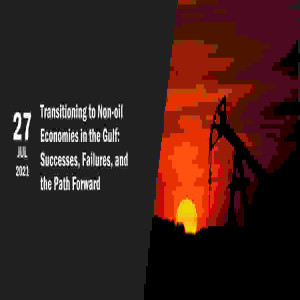
Friday Jul 30, 2021
Friday Jul 30, 2021
Economic diversification strategies to wean Gulf economies away from a dependence on hydrocarbon revenues have existed for decades. Ongoing state-led investments in strategic non-oil industries have produced varied results. Recent development initiatives involving culture, renewable energy, and technology-oriented industries appear promising; however, the return on investment is neither immediate nor guaranteed. Proceeds from the oil and gas sector continue to constitute the majority of public sector revenues in Gulf Arab states.
Are overlapping initiatives to develop non-oil industries in the region opportunities for cooperation or competition? With a steady rebound in oil prices since the oil price shocks of 2020, will oil- and gas-producing countries in the Gulf relax economic diversification efforts? Do protests in Oman signal a wider dissatisfaction with the fiscal adjustments implemented since 2020? What does this reveal about the rentier state theory and the nature of economic reform and development in the Gulf?
The Middle East Institute, in collaboration with the Arab Gulf States Institute in Washington (AGSIW), will host a panel to tackle these and other questions.
This public talk was conducted online via Zoom on Tuesday, 27 July 2021, from 8.00pm to 9.30pm (Singapore Time).
For more information about this event, click here: https://mei.nus.edu.sg/event/transitioning-to-non-oil-economies-in-the-gulf-successes-failures-and-the-path-forward/
Photo by Zbynek Burival on Unsplash
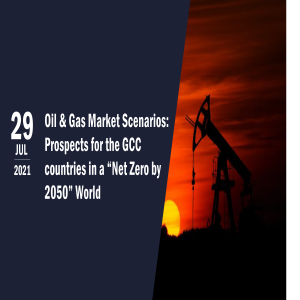
Monday Aug 02, 2021
Monday Aug 02, 2021
On 18 May 2021, the International Energy Agency (IEA) published a landmark report on a pathway to net-zero carbon emissions by 2050. Among the many proposals in the report is the call to immediately end investments in oil and gas exploration and development.
Gulf Cooperation Council (GCC) economies still depend heavily on oil and gas for their national income, government budgets and social order. They have all, to varying degrees, embarked on economic diversification initiatives over the last several years to reduce such dependency. However, the dual shocks of relatively low oil and gas prices since mid-2014 and the pandemic-induced global economic slowdown in 2020 afflicted the GCC countries at a time when the urgency for promoting economic diversification, expanding employment opportunities for their youthful population and attaining fiscal sustainability had already become critical.
This webinar seeks to explore the following questions facing the GCC:
- How credible is the IEA pathway to net zero by 2050 and how will this affect the price and volume outlook for oil and gas exports from the GCC?
- By discouraging private sector investments in the oil and gas, are the policies promoted by the IEA favourable to the national oil and gas companies (NOCs) in the GCC and OPEC+ more generally, regarding their market shares in global oil and gas markets?
- Are there specific corporate strategies that GCC NOCs will tend to favour if the OECD countries adopt policies recommended by the IEA in the “net zero by 2050” scenario?
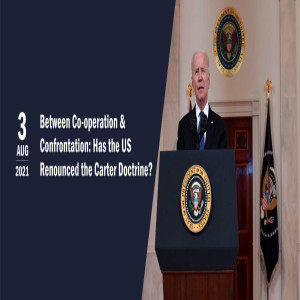
Sunday Aug 08, 2021
Sunday Aug 08, 2021
The Biden administration’s decision to pull all troops out of Afghanistan has added to the chorus of discussion on the evolution of America’s Middle East policy from a boots-on-the-ground orientation towards that of an offshore balancer.
But with tens of thousands of troops still based in the Gulf, is the American role really shifting? Are Washington’s mixed signals forcing GCC countries to review their strategic alliances, such as hedging with other big powers including China? Or is moving away from purely military partnerships towards more diplomatic, political and economic engagement the way forward not just to secure American interests but for a more stable and peaceful region?
This public talk was conducted online via Zoom on Tuesday, 3 August 2021, from 8pm to 9.30pm (SGT).
For more information about this event, click here: https://mei.nus.edu.sg/event/between-co-operation-confrontation-has-the-us-renounced-the-carter-doctrine/
![[Boots Off the Ground: Security in Transition in the Middle East and Beyond] Episode 17: America’s Global Military-Labour Infrastructure](https://pbcdn1.podbean.com/imglogo/ep-logo/pbblog4563756/BOTG-LOGOArtboard-1-Edited-700x461_300x300.png)
Thursday Aug 12, 2021
Thursday Aug 12, 2021
In this episode, Dr Adam Moore discusses his latest book Empire’s Labor: The Global Army that Supports U.S. Wars. He draws on his research with Filipino and Bosnian migrant labour to sketch out the vast transnational logistical infrastructure employed in running day to day US military affairs around the world.
This podcast series is presented by Dr Alessandro Arduino, Principal Research Fellow and Dr Ameem Lutfi, Research Fellow, at the Middle East Institute, National University of Singapore.

